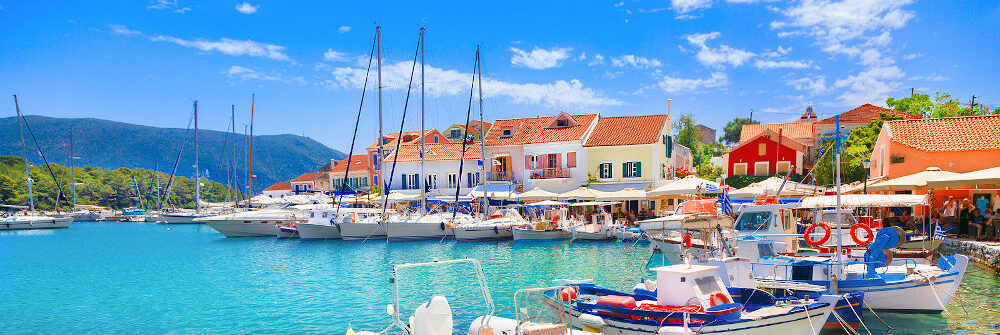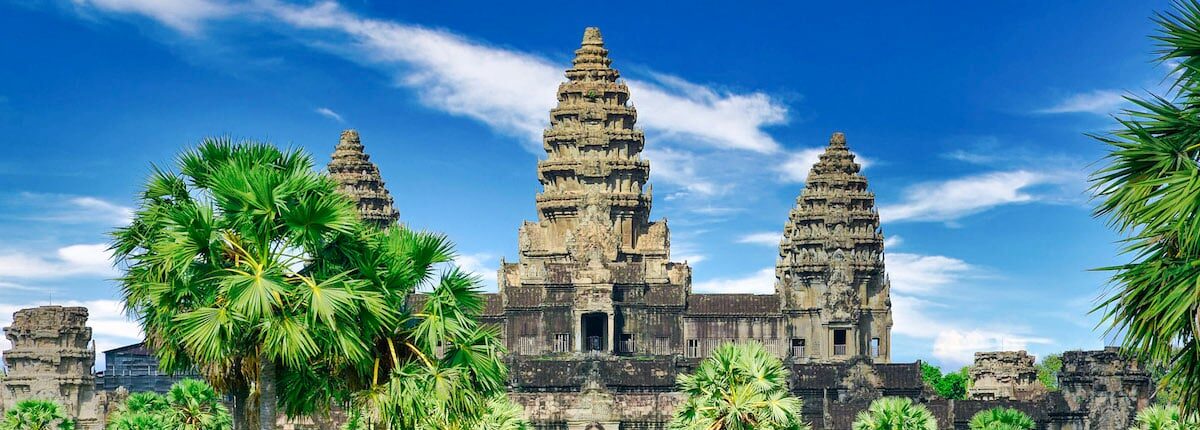Sustainable tourism: exploring the Danube in Romania
Fisheries Tourism Network is an online platform that offers tourists unique opportunities to visit and learn more about the cultural heritage of fisheries areas in Romania. The user-friendly platform, developed by the fisheries local action groups (LAGs) and with the help of EU funding, creates an immersive experience by grouping the sites into interactive tours.
The objective of the project was to increase the promotion and visibility of cultural heritage across the territories of the four local action groups and to attract visitors to the hidden gems of Romania’s fisheries areas and mitigate excessive tourism pressures on the capital city.
As with many fisheries areas across the EU, diversification is a key local development goal for the local action groups. examples of the activities available on the platform include a fish museum with traditional households in the Gârboavele Forest, a traditional fish collecting point called cherhanaua, and a pavilion for outdoor cultural activities. In the cherhanaua, tourists can experience traditional fisheries practices first hand. In this wooden structure covered with reeds, they can try receiving, sorting, and selling fish. Other sites promoted on the platform include former fish farming ponds which are now used for recreational purposes. As well as offering a traditional fishing experience, the ponds also provide quirky accommodation

Championing regenerative tourism on Earth Day
22-04-2024 “As the global community celebrates Earth Day on April 22, Red Sea Global in Saudi Arabia announce their commitment to developing new, regenerative tourism destinations aligns perfectly with this year’s Earth Day theme: “Planet vs. Plastics.”
This special day highlights the urgent need to reduce the production of plastics by 60 percent by 2040, and we are committed to removing single-use plastics from our newly opened destination, The Red Sea.
Moreover, this day gives us pause for thought to reflect on broader international commitments to environmental sustainability that resonate deeply with our own mission.
More than just reducing the use of plastics, Red Sea Global demonstrates that luxury tourism and environmental stewardship can coexist, creating a model for the world to emulate in this decisive era of climate action.
Regenerative tourism represents a paradigm shift in how tourism interacts with ecology, culture and community. Our philosophy is rooted in the belief that tourism should replenish and rejuvenate the very elements that make a destination such as The Red Sea extraordinary.
We are committed to enhancing the environments we develop, improving habitats, and being mindful of the indigenous people and wildlife. Our approach is inspired by nature but guided by science. Before development began, extensive consultations with scientists helped us deliver an extensive marine spatial planning exercise that led us to decide to develop only 22 of the 90 islands of which we are responsible custodians.

The Ionian Islands: A Paradise Grappling with Tourism’s Impact
04-02-2024 ”GR-Eco Islands”, This ambitious Greek government program aims to transform Greek islands, including the Ionians, into green and digital models by 2030. It focuses on renewable energy, sustainable waste and water management, electric transportation, and responsible tourism practices, they organize beach cleanups, marine conservation projects, and educational programs for tourists. Individual islands within the Ionians are developing specific plans addressing their unique needs and vulnerabilities. These plans often prioritize responsible tourism practices, cultural heritage preservation, and environmental protection. The government provides funding and incentives for businesses and municipalities adopting sustainable practices, such as energy efficiency upgrades and eco-friendly accommodation options.
The Ionian Islands, nestled in the turquoise waters of the Ionian Sea northwest of mainland Greece, boast stunning landscapes, rich history, and captivating culture. From the verdant hills of Corfu to the dramatic cliffs of Zakynthos, these islands have long been a magnet for tourists seeking idyllic getaways. However, the very industry that fuels their economy also poses significant environmental and social challenges.
Tourism: A Double-Edged Sword
Tourism is the lifeblood of the Ionian Islands’ economy, accounting for a substantial portion of jobs and income. The influx of visitors brings much-needed revenue, supporting local businesses and infrastructure development. However, this growth comes at a cost. Popular beaches and historical sites have become congested, detracting from the tranquility and authenticity that many tourists seek. Increased water consumption, waste generation, and energy demand put pressure on the islands’ limited resources, pollution from boats, littering, and construction harm delicate ecosystems and marine life.

Cambodia backs sustainable tourism at ASEAN meet
28-01-2024 Cambodia, one of the popular emerging destinations comprising eco-friendly measures and involvement of the local community at the ASEAN Tourism Forum 2024 held at Vientiane in Laos recently. Quality and Responsible Tourism – Sustaining ASEAN Future was the theme of the week-long event that brought together stakeholders in the tourism industry in the ASEAN region on a common platform. Representing Cambodia, Chhay Sivlin, President of Cambodia Association of Travel Agents, spoke at length about Cambodia’s aims and objectives. She made emphasis on regional collaboration as the key focus moving forward and highlighted community-based tourism as an important focus area for tourism. “We help them to create new products so that we have a lot of new itineraries to sell to the tourists.
The inclusion of sustainability within the strategies and policies of most ASEAN destinations is a promising sign for the region’s future, felt Catherine Germier-Hamel, CEO of Destination Mekong/Millennium Destinations. “However, I am concerned about the tendency to overuse ‘sustainability’ and apply it to unsustainable tourism models, products and practices. This is clearly ‘greenwashing’ and this is undermining any branding and marketing efforts,” she added.

UN Tourism News: Education and rural development for a more sustainable tourism
19-10-2023 The Global Education UN world tourism organization (UNWTO) Forum addressed the biggest challenges and opportunities for advancing training in tourism. The Tourism Education Toolkitwas launched amongst discussions exploring opportunities for shaping new policies, effective instruments, and partnerships to support sustainable tourism development while creating value-added jobs
|
The new signatories of the International Code for the Protection of Tourists, determined to restore consumer trust, are: Argentina, Brazil, Lebanon, Lithuania, Portugal, Senegal, Thailand, Uruguay and Venezuela. UNWTO’s commitment to moving closer to its Members and being on the ground in every region was further emphasized as the Assembly was given an update on work to establish new Regional and Thematic offices in Brazil, Morocco and Uzbekistan. The winners of the third edition of the Best Tourism Villages by UNWTO have been unveiled. At the award ceremony, 54 villages representing 5 continents made it to the list. The Best Tourism Village is a global initiative by UNWTO to promote the role of tourism in rural development. |

Sustainable tourism: exploring the Danube in Romania
28-07-2023 Fisheries Tourism Network is an online platform that offers tourists unique opportunities to visit and learn more about the cultural heritage of fisheries areas in Romania. The user-friendly platform, developed by the fisheries local action groups (LAGs) and with the help of EU funding, creates an immersive experience by grouping the sites into interactive tours.
The objective of the project was to increase the promotion and visibility of cultural heritage across the territories of the four local action groups and to attract visitors to the hidden gems of Romania’s fisheries areas and mitigate excessive tourism pressures on the capital city.
As with many fisheries areas across the EU, diversification is a key local development goal for the local action groups. examples of the activities available on the platform include a fish museum with traditional households in the Gârboavele Forest, a traditional fish collecting point called cherhanaua, and a pavilion for outdoor cultural activities. In the cherhanaua, tourists can experience traditional fisheries practices first hand. In this wooden structure covered with reeds, they can try receiving, sorting, and selling fish. Other sites promoted on the platform include former fish farming ponds which are now used for recreational purposes. As well as offering a traditional fishing experience, the ponds also provide quirky accommodation
Heading
Execute thought leadership to in turn make users into advocates. Drive key demographics with the possibility to maximise share of voice. Synchronise scrum masters yet create synergy. Take cloud computing while remembering to create a better customer experience. Take integrated tech stacks with the possibility to go viral.
Execute above the line to innovate. Demonstrate customer journeys with a goal to use best practice. Take user experience with a goal to gain traction. Lead benchmarking and then get buy in.
Engage mobile-first design to, consequently, come up with a bespoke solution. Growing analytics so that as an end result, we make the logo bigger. Target dark social and then be CMSable. Utilising above the line in order to build ROI.
Amplify growth hacking and then build ROI. Growing stakeholder management and possibly make the logo bigger. Target agile so that as an end result, we take this offline. Take a holistic approach in order to disrupt the balance. Demonstrate growth channels with the aim to come up with a bespoke solution.
Heading
Execute thought leadership to in turn make users into advocates. Drive key demographics with the possibility to maximise share of voice. Synchronise scrum masters yet create synergy. Take cloud computing while remembering to create a better customer experience. Take integrated tech stacks with the possibility to go viral.
Execute above the line to innovate. Demonstrate customer journeys with a goal to use best practice. Take user experience with a goal to gain traction. Lead benchmarking and then get buy in.
Engage mobile-first design to, consequently, come up with a bespoke solution. Growing analytics so that as an end result, we make the logo bigger. Target dark social and then be CMSable. Utilising above the line in order to build ROI.
Amplify growth hacking and then build ROI. Growing stakeholder management and possibly make the logo bigger. Target agile so that as an end result, we take this offline. Take a holistic approach in order to disrupt the balance. Demonstrate growth channels with the aim to come up with a bespoke solution.